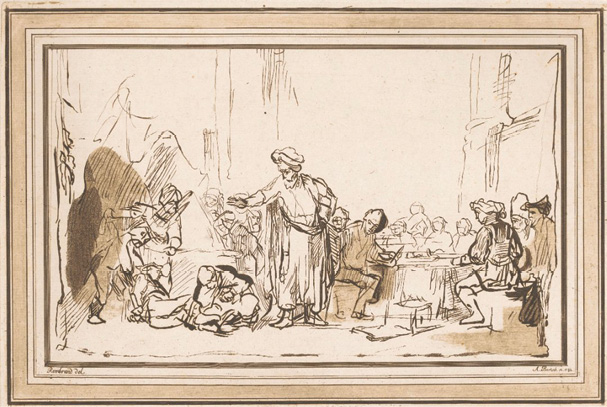(Don’t miss the shocking conclusion!)
Online media providers know exactly what to promise the public to draw them in. “Don’t miss the shocking conclusion” is especially effective bait in that it not only compels the public to bite, it encourages that visitor to chew longer—increasing something known as “session duration.” Online income is directly related to how long visitors remain “on site.”
It would not be inappropriate to attach that same phrase to the Parable of the Marriage of the King’s Son, recorded in Matthew 22:1-14. Don’t allow a diminished attention span to rob you of the message our Savior communicated to us in this parable. Not only is the ending truly shocking, it is the key that unlocks the entire parable.
A king (God the Father) gave a wedding feast for his son (Jesus) and sent his servants (the prophets) to call those who were invited (the Jews). They refused the invitation. Later he sent other servants (the Apostles and other disciples) with the message that the oxen and fat calves had been slaughtered (Jesus had been sacrificed to pay man’s sin debt) and all was ready (the door to heaven had been opened.) Again, they refused the royal invitation, some more concerned with their possessions and others with accumulating still more. Choosing an alternative is the most common form of rejection. Others mistreated and murdered those who brought the king’s invitation (the Gospel.) Angered, the king sent his soldiers (most immediately from Rome) to destroy both the murderers and their city (Jerusalem was destroyed by Roman legions under Emperor Titus in A.D. 70). The king then told his servants to invite all (Gentiles as well as Jews), both the bad and the good (those whom society regarded as evil, and those who were seen to display a civic righteousness.)

But don’t miss the shocking conclusion, for without it the parable is incomplete, dramatically so. The obvious enemies had been separated, but what about the pretenders—the hypocrites or false friends? A man was found without a wedding garment. The contention by historians that wealthy kings of the day would provide appropriate wedding garments for their guests is borne out by the fact that, when confronted, the man was speechless. He had no defense for his actions, since the robe of Christ’s righteousness had been freely offered to him, as it was freely offered to rich and poor, strong and weak, noble and common. The man had refused the imputed righteousness of Jesus, evidently assuming that his own garment (his own personal righteousness) was enough. Only the king was able to see through the hypocrisy and to recognize the true condition of the man’s heart, and his judgment was as sobering as it was irrevocable. He commanded his attendants (His angels) to bind the man hand and foot, and to cast him into outer darkness (the eternal torment of hell).
It is in this dramatic ending that both the Law and the Gospel are clearly identified and divided. The Law: those who reject Jesus Christ and the payment He made for their sins on Calvary’s cross will not be allowed into God’s heaven—whether that rejection is openly paraded or secretly espoused. All will be sentenced to the unspeakable anguish of hell for all eternity.
The Gospel: the divine invitation excludes no one, and the righteousness needed to cover your sins is freely provided by Jesus Christ. No matter the sins of the past, present, or future, Christ’s righteousness covers all, for Christ Jesus paid for all. “The blood of Jesus Christ His Son cleanses us from all sin.” (1 John 1:7)
is pastor of Saint Paul Lutheran Church in Bismarck, North Dakota.


